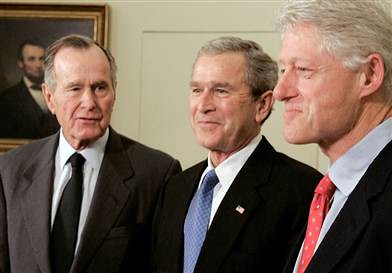Are the Syria strikes an illegal war? By what authority has President Barack Obama ordered these attacks? The administration says that it doesn’t need congress to approve it and congress, along with the courts, has surrendered its responsibility.
By Jonathan Turley, Constitutional Law Professor George Washington University
I just completed a two-city debate with former Bush official John Yoo on executive power with a focus on undeclared wars. It appears Yoo won the debate . . . at least with President Obama. Indeed, Yoo appears to have had Obama at “hello” to quote Jerry Maguire. Without any declaration of war, Obama has launched attacks against targets in Syria – an act of war by any measure and a violation of international law.
We have been discussing the growing concerns over President Barack Obama’s series of unilateral actions in ordering agencies not to enforce law, effectively rewriting laws, and moving hundreds of millions of dollars from appropriated purposes to areas of his choosing. One of the greatest concerns has been his unchecked authority asserted in the national security area.
The most serious acts of unilateral presidential action falls within war powers – powers that the Framers expressly and carefully limited to prevent precisely this type of attack. Of course, the Administration does not use the word “war.” I previously represented members of Congress in challenging Obama’s intervention in the Libyan civil war without a declaration from Congress. In the case, President Obama insisted that he alone determines what is a war and therefore when he needs a declaration. Since the court would not recognize standing to challenge the war, it left Obama free to engage in war operations in any country of his choosing.
Professor Turley joined David Corn, Mother Jones Washington Bureau Chief, on MSNBC’s “The Last Word” with Lawrence O’Donnell to discuss just how legal are these attacks.
By Dan Roberts, The Guardian
Lawyers use Iraq’s right of self-defence and weakness of Syrian regime – which US has undermined – to justify failure to seek UN approval
In a letter to the United Nations secretary general, Ban Ki-moon, released near 24 hours after attacks began, US ambassador Samantha Power argued that the threat to Iraq from Islamic State, known as Isis or Isil, gave the US and its allies in the region an automatic right to attack on its behalf. [..]
The brief letter did not mention the US invasion of Iraq in 2003, which rested on erroneous claims of weapons of mass destruction and arguably contributed to its current instability, but stresses instead the country’s right to self-defence in the face of this new threat. [..]
The US also argued that there was legal right to pursue Isis inside Syria due to the weakness of that country’s government – a regime the US has been actively urging be undermined by rebel groups for much of the past two years. [..]
Fearing that US politicians up for re-election in November may balk at voting for a third military attack on Iraq and being sucked into a Syrian quagmire, the White House has avoided seeking a fresh authorisation of the use of military force, preferring to rely on early authorisations against al-Qaida granted after the 11 September 2001 attacks.
But this means arguing that Isis is equivalent to al-Qaida, even though the groups are split – logic that several critics in Congress, such as Virginia senator Tim Kaine, have argued is flawed and requires a fresh authorisation to fix.
Power reached for similar arguments in her letter to the UN, arguing that Tuesday’s separate attack on Khorasan rebels in Syria was also an act of self defence by the US due to the group’s closeness to al-Qaida.
By Trevor Timm, The Gusrdian
When it comes to military strikes against Isis in Syria, his administration’s strategy relies on what the meaning of ‘is’ is
Want to decipher what the US military is really doing in Iraq and Syria, or figure out whether its regional war against the Islamic State (Isis) is legal? Good luck. The Obama administration’s secret efforts to redefine the ordinary meaning of key legal terms and phrases has made that near impossible.
For instance, in his Tuesday statement that US airstrikes that have expanded into Syria, Obama studiously avoided any discussion about his domestic legal authority to conduct these strikes. That dirty work was apparently left up to anonymous White House officials, who told the New York Times’s Charlie Savage that both the Authorization of Use of Military Force (AUMF) from 2001 (meant for al-Qaida) and the 2002 war resolution (meant for Saddam Hussein’s Iraq) gave the government the authority to strike Isis in Syria.
In other words: the legal authority provided to the White House to strike al-Qaida and invade Iraq more than a dozen years ago now means that the US can wage war against a terrorist organization that’s decidedly not al-Qaida, in a country that is definitely not Iraq. [..]
So when you hear the words “imminent attack”, “civilians”, militants” or “ground troops” from now on, be careful: if the government says they’re not misleading you, it might only be because they’ve secretly changed the definition of “misleading”.
Public Law 107-40 – the President is authorized to use all necessary and appropriate force against those nations, organizations, or persons he determines planned, authorized, committed, or aided the terrorist attacks that occurred on September 11, 2001
Public Law 107-243 – The President is authorized to use the Armed Forces of the United States as he determines to be necessary and appropriate in order to defend the national security of the United States against the continuing threat posed by Iraq
Neither one of those laws applies to this situation. The president is on violation of his oath of office


Recent Comments